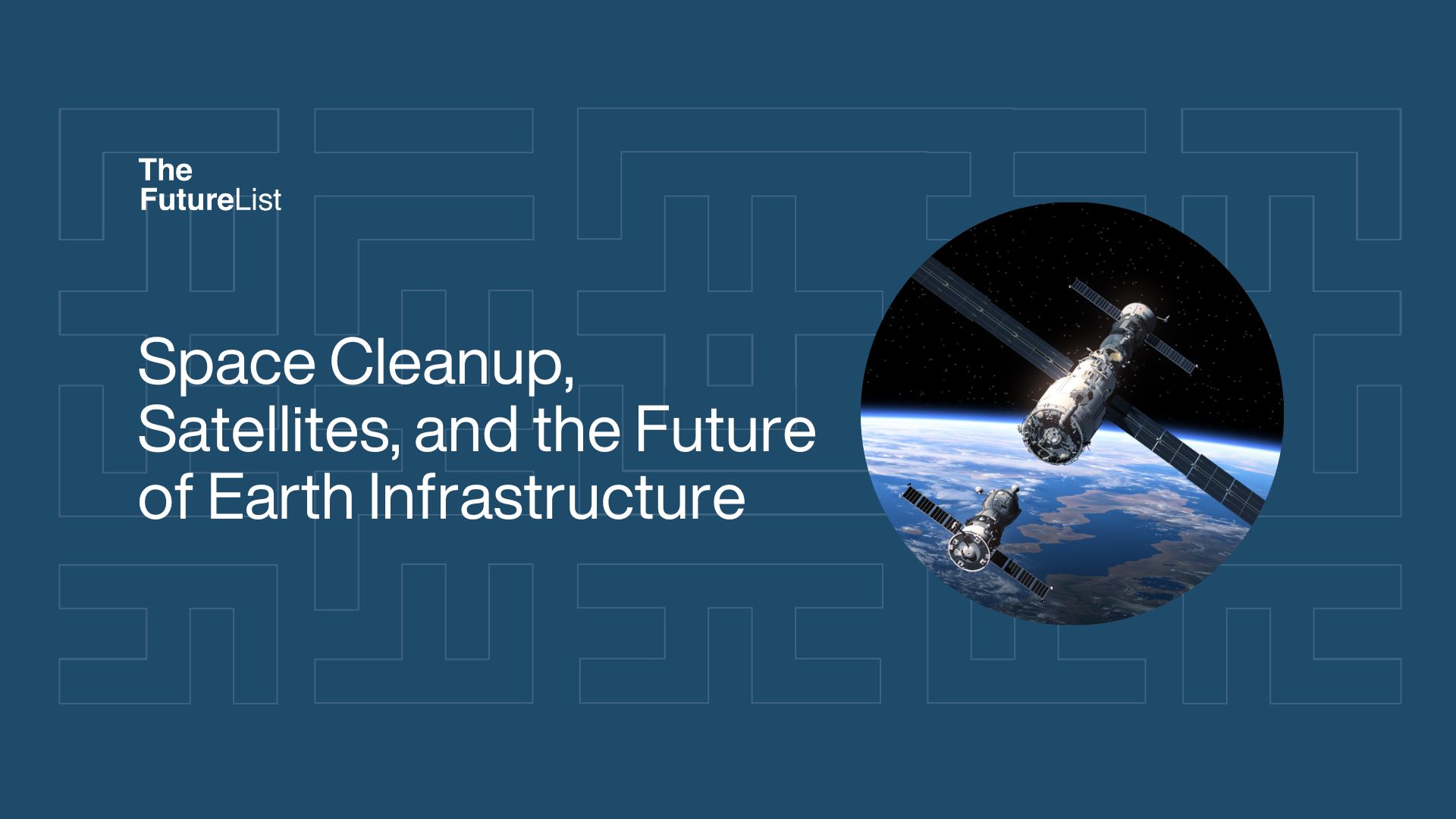
Space Cleanup, Satellites, and the Future of Earth Infrastructure
The rapid expansion of humankind’s space presence, satellite technology advancements, orbital junk cleanup initiatives, and the emergence of private space stations all significantly impact earthly existence. From facilitating worldwide internet access and real-time environmental monitoring to providing safer orbital settings and breaking new ground in research and production, space is evolving from being a realm of exploration to becoming an essential infrastructure layer for contemporary society.
How Space Cleanup Initiatives Work
The growing issue of orbital debris—defunct satellites, wasted rocket stages, and collision fragments—that poses a major risk to operational spacecraft and the ISS is the focus of space cleanup programs. These initiatives combine the development of policies, cutting-edge debris cleaning techniques, and tracking systems. To securely capture or deorbit trash, organizations and businesses are creating solutions including nets, harpoons, robotic arms, and even laser-based devices. While some projects concentrate on actively cleaning up current trash, others design new satellites with end-of-life disposal mechanisms. Space cleanup has become essential to preserving a safe and sustainable space environment as the number of satellites in orbit keeps growing, particularly with mega-constellations.
Innovative Startups Leading the Charge in Space Cleanup
Astroscale
Founded by Nobu Okada, Astroscale is a Japanese/UK-based firm that focuses on addressing the growing challenge of space debris by developing on-orbit servicing technologies to support the long-term sustainability of space operations. As satellite deployments increase globally, Astroscale provides technical solutions aimed at maintaining safe and accessible orbital pathways through debris removal, satellite life extension, and end-of-life management services.
LeoLabs
LeoLabs, co-founded by Daniel Ceperley, develops technologies that support real-time tracking and characterization of objects in Earth’s orbit, contributing to enhanced space domain awareness and operational safety. Through a network of proliferated, ground-based radars and AI-driven analytics, the company offers tools for identifying orbital threats and monitoring increasingly complex space activity.
Skyrora
Skyrora is a British company founded by Volodymyr Levykin that develops launch vehicles and in-orbit services designed to support the growing small satellite sector. Its modular range includes multi-stage rockets for suborbital and orbital missions, such as the Skyrora XL for Sun-Synchronous Orbit placement, and other platforms for experimental and simulation purposes.
Planetary Systems AI
Co-founded by Aaron Sloman, Planetary Systems AI (PSAI) develops advanced data fusion and AI-driven interoperability solutions for space operations. Supporting both government and commercial missions, including work with the U.S. Space Systems Command, PSAI focuses on accelerating real-time decision-making and enhancing Space Domain Awareness. Their systems integrate multiple data sources to streamline analysis and operational coordination during launch and orbital activities, contributing to more efficient and responsive mission control in increasingly complex space environments.
Get innovation insights from The FutureList weekly. Subscribe to our newsletter here
Categories
- Agritech
- Artificial Intelligence
- Biotech
- Blockchain
- Climate Tech
- Data Infrastructure
- Edtech
- Events
- Fashion
- Fintech
- Healthtech
- Infrastructure
- Innovation Memos
- Innovation Scout Program
- Insight
- Insurtech
- Machine Learning
- Martech
- Mobility
- Music and Media
- Partner Offers
- Perks
- Procurement
- Proptech
- Retailtech
- Ridehailing
- Ridesharing
- Robotics
- Space Aviation
- Supply Chain
- Talent
- Telecoms
- Uncategorized
- Venture Capital
- Wastetech
- Women In Tech
Recent Posts
- The Formula for Future Speed: Data-Driven Performance in Racing
- Leveraging Next-Gen Endoscopic Interventions and Innovations for Healthcare
- Inside the Quiet Work of Operationalizing AI Ethics in Government
- The Evolution and Impact of DNA Cloning Technology
- The Infrastructure Layer for Ethical Supply Chains